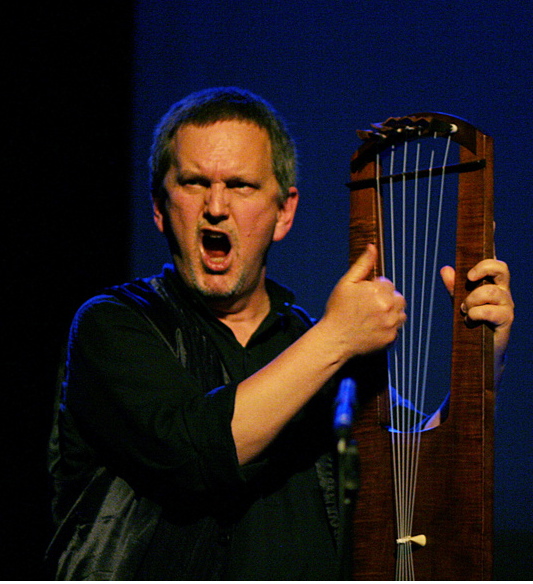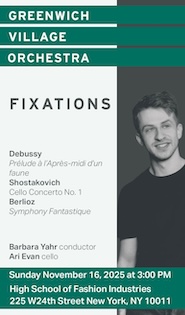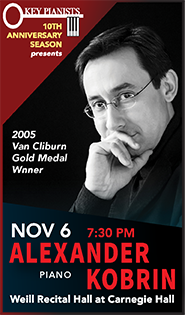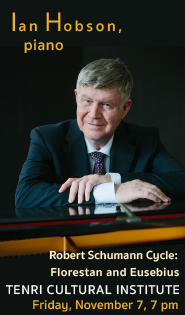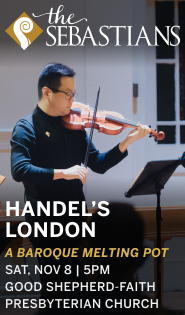Venue and technology prove Achilles’ heels for “hero” program at Zankel
David Lang holds the Debs Composer’s Chair for the current Carnegie Hall season, and he’s put together a high concept, and highly imaginative, series of six concerts, under the title of “collected stories.” The music spans millennia and includes classics, premieres, and some of the most eccentric and experimental pieces ever to grace the concert stage.
Tuesday night’s opening concert, at Zankel Hall, was a case study, pairing Benjamin Bagby’s vivid Old English recitation of Beowulf with a semi-staged (costumes, blocking and video) production of Harry Partch’s great hobo opera, The Wayward. Lang’s subtitle for the program was “hero”—in his words, “two ways music accompanies a heroic narrative.”
Beowulf is obviously a heroic story, and Bagby—co-founder of the great medieval music ensemble Sequentia—supplies the music, accompanying himself on the medieval harp and both singing and give musical intonation to the words. He works with an abridged text to get the piece in at about seventy minutes, skipping some scene setting and finishing with Beowoulf’s triumph over Grendel, leaving the hero’s fight with the monster’s mother, and Beowulf’s eventual return to home, and death, for further reading at home.
Bagby is vocally and physically charismatic, and his recitation reaches deep into the cultural roots of civilization, touching intuitive feelings that storytelling is the main reason people gather together, as is music-making.
Music has been made for all kinds of social and ceremonial reasons across cultures for thousands of years, and the most commonplace social ceremony has been storytelling—from amphitheaters to churches to campfires to television screens. This was acutely the case for pre- and illiterate societies, and was how Beowulf was heard in Medieval Europe.
The poem certainly was not heard in monotone, à la Steven Wright: the performer would have been run through with a spear from the (likely) drunken crowd long before the roughly five-hour duration of the full narrative was reached. There was music of some kind, certainly in the voice if not, as well, with accompanying instruments.
Zankel Hall is not a court chamber or a tavern—Bagby played a marvelous, drunken Unferth inside the poem—and the size and scheme unfortunately worked against the effect of what he’s doing. His presence fills the space, but seating in an auditorium, facing him seems the wrong way to experience such a marvelous and unique performance. One wants to not only react to him but to have him react to the audience, to banter and pass a cup. Hearing the Old English vernacular claw its way out of the Dark Ages and towards the light of modernity makes the formality of the concert-going experience feel stultifying and arbitrary.
Harry Partch’s heroes are very different than Beowulf, just Depression-era hobos on the bum hopping the freight trains, trying to find food, work, some companionship, and maybe a way back home. But his musical conception, though specific to 20th-century America, was closer to what Bagby does than to anything in modern or contemporary classical music.
Partch—an almost clichéd American mix of crank, eccentric, and genius—rejected a thousand years of Western harmony and tonality and based his musical system on Pythagorean proportions and ancient Greek drama. That led him to a 43-note to the octave scale, and the need to build his own instruments to realize that—he often called himself a composer seduced into carpentry. He made giant marimbas out of bamboo, zither-like stringed instruments (kitharas), percussion instruments out of glass lab vessels (cloud-chamber bowls), and reworked the insides of a Sears pump organ to create the chromelodeon.
The Wayward is a collection of shorter pieces, including Barstow: Eight Hitchhiker’s Inscriptions from a Highway Railing at Barstow, California, and U.S. Highball: A Musical Account of a Transcontinental Hobo Trip. Their sound combines lithe rhythms, uncanny pitches and plainspoken pathos and humor, and Partch’s unique quality quickly feels natural. These pieces aren’t just weird—-they feel familiar and significant.
The playing by the Harry Partch Instrumental Ensemble, and the singing from baritone Stephen Kalm and bass-baritone Robert Osborne, was vivacious and assured, but the details of the staging were frustratingly off-putting. The accompanying video—a confused montage of live images from the stage, a recorded rehearsal, title cards and images of trains and, oddly, the air mail system—was plagued by amateurish projection that kept showing the video software control bar on the screen, and once even the computer file name.
One could tune that out by focusing on the stage. But there, the antic blocking was distracting, and more damaging still was the bad amplification. Some of the instruments were miked, although not the chromelodeon (which needed it), while the singers were not. Every time bass-baritone Robert Osborne sang while the smallish, surrogate kithara was playing, that instrument’s amplification completely buried his voice. For Partch, already full of ideas and activity and mostly unfamiliar, less is more. Let the heroes be.
“collected stories” runs through April 29 and continues at 6 p.m., April 23 with “collected stories: spirit”: Tuvan throat singing and Arvo Pärt’s Passio. carnegiehall.org
